Hamburg is a city of contrast. An old soul with a new spirit, open yet reserved, and there’s more to it than meets the eye.
On the rooftop of The George Hotel in Hamburg on Barcastraße 3, there is a familiar view of Hamburg, and as every official guidebook would like to say – a Free City. It is of course in tradition and a political fact.
The Free Hanseatic City of Hamburg has always thought of itself as a state apart from the rest of Germany and retains much of its autonomy even after the country’s unification in 1871. It is that peculiarity that I found myself one morning surveying Hamburg’s cityscape on the hotel’s rooftop during my recent visit to the city, famously known as ‘tor zur welt’ or gateway to the world.
Anyone who has visited Hamburg will be familiar with its ancient port and maritime supremacy since the Hanseatic days, the city’s striking affluence, its twin lakes (the inner and outer Alster), the Elbe river that snakes into the North Sea where tankers and traders venture to the outside world, and not to mention the city has more canals than Amsterdan and Venice combined.
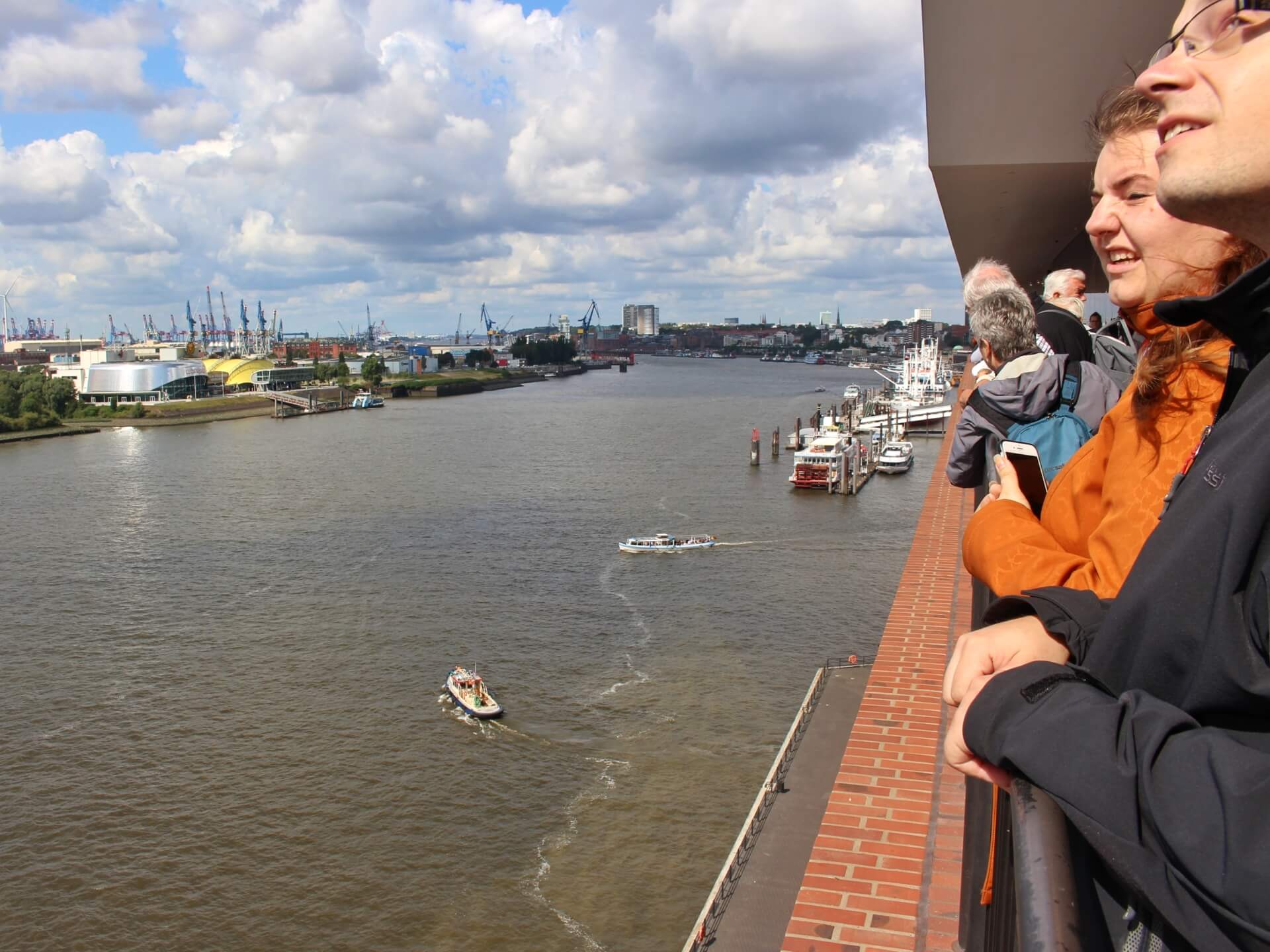
To the Hamburgers, it is the greatest city. The outsiders, however, are far more convinced that Hamburg is a place where coffee is as good as gold and fur and spices flow, where dreamers become legends (as in the case of The Beatles where the band’s career took off in St. Pauli), or a place to gape at the dazzlingly old-world wonders – be it architecture or the walls behind the neon-lit Reeperbahn’s pleasure quarters where harlots and sailors give debauchery a proper definition.
My recent visit spoke of another Hamburg, a city of jarring jangly juxtapositions.
Whether by the hotel’s rooftop or among its modest balconies, if I lean a few inches forward without craning my neck, I can see skiffs and slim rowing shells gliding along the impassive waters of the Alster as gulls make their patrol overhead. It feels like I could be in England, save for the fact that this city speaks stubbornly deutsch.
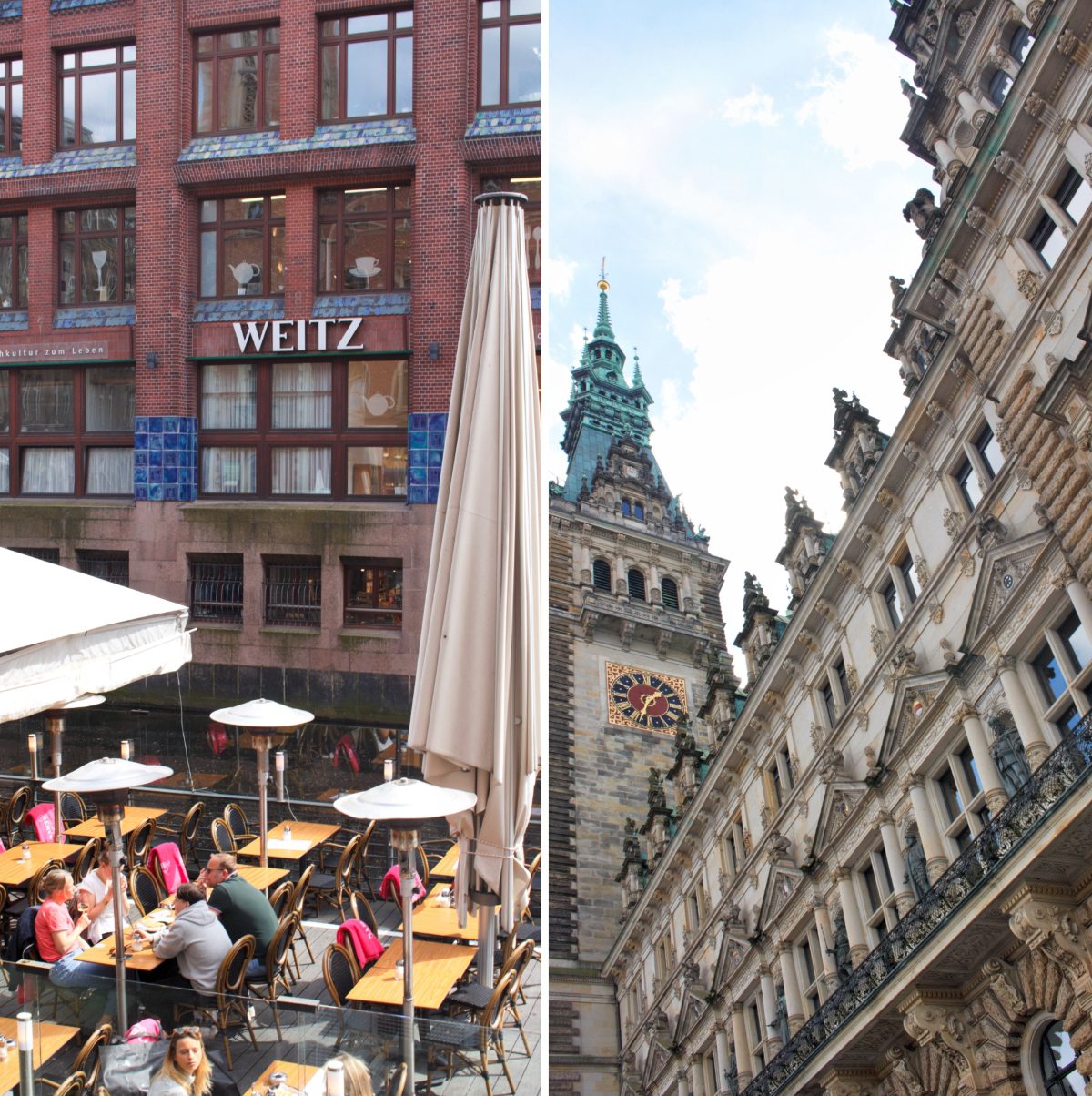

Hamburg’s relationship with its more famous counterpart across the North Sea and up the River Thames goes back a long way – and not just because of the weather.
The Hamburgers would often take overnight ferries to London in the days prior to the fall of the Berlin Wall, just to get a dose of, as the Brits would say ‘jolly good fun’ instead of making the drive to Berlin. Then of course there’s the shipping industry gilded by centuries of trade.
Nowhere else in Germany is this special bond more celebrated than in Hamburg. Trifles, bangers, sticky puddings, scones and cuppa teas, and wellies – you name it. And that’s just a wee bit of the entire ‘British Flair’ shebang that the city holds annually which showcases the quintessentially British way of life. It might just as well be true that Hamburg is the most British city in Germany.
The fascination or in some level obsession with all things Brit, stretches as far as the river Elbe goes. But to those closer to the city’s shores, the mania is taken to a whole new meaning.


Opened in 2008, the hotel is relatively new if you compare the historical links that existed between the city and Britain. One might say that the hotel itself is an extension of Kai Hollmann’s fondness of this rather unique bond.
As a British aficionado himself (and probably a big Beatles fan based on his Paul McCartney’s coif), Hollmann, owner and Hamburg’s hotelier icon, calls The George the ‘New British Style’. It couldn’t have been more obvious. His sense of humor is awfully British.
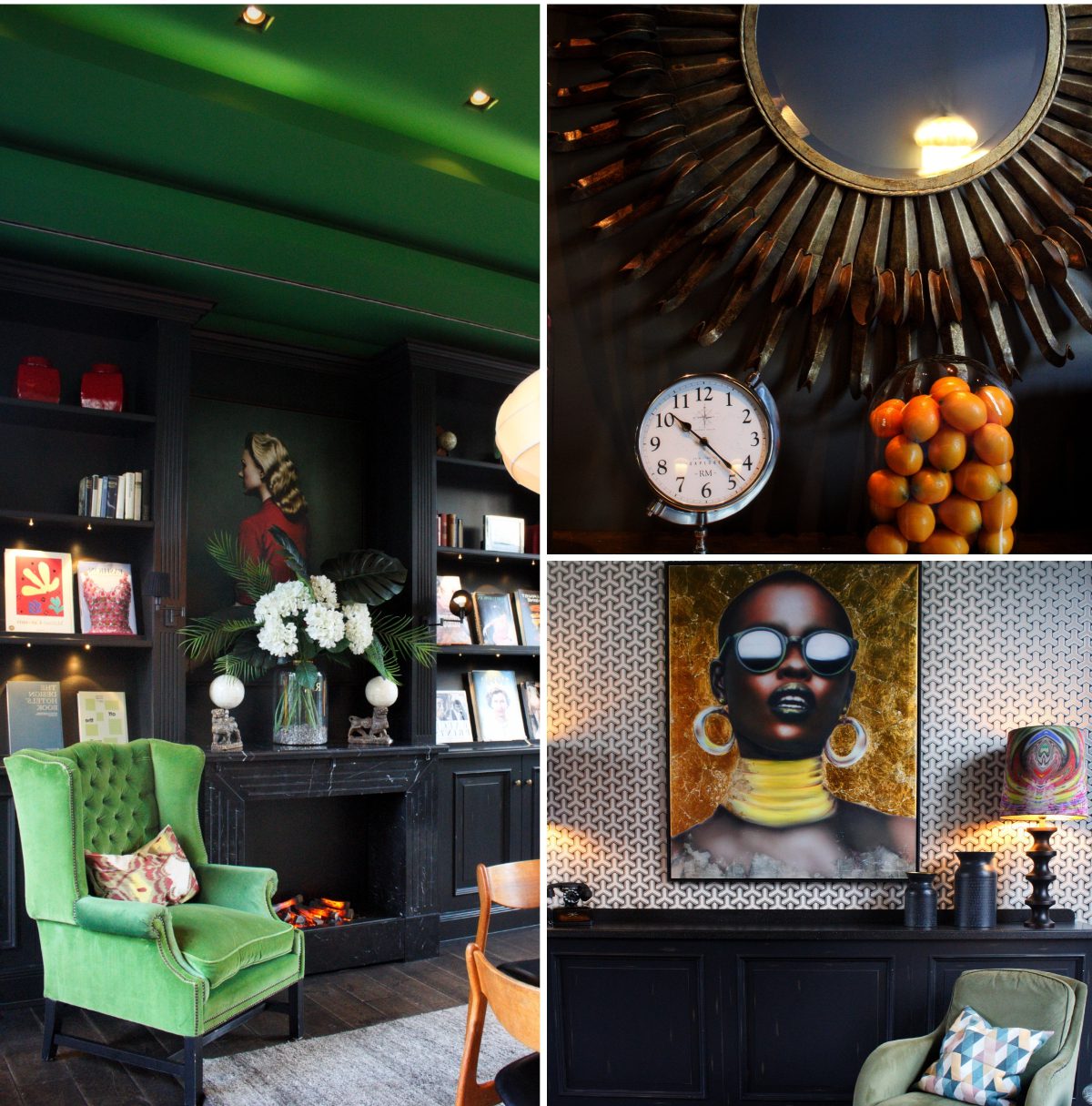

Expect prints and patterned wallpapers, deep and warm hues complemented by soft pastels, leather and fabric sofas that come with Union Jack throw pillows, cozy furnishing and rugs, cascading quirky jellyfish wall lamps and a classic library with fireplace – it’s as if one is stepping into a stylish private home in London or to a countryside retreat.
In some rooms, one stumbles onto large frames of black and white photos of Twiggy seen descending steps or looming above a double-decker bus. Literally driving home the whole English experience.
Meanwhile on the other side of town in the suburban Altona district, just northwest from the center, Hamburg’s self-contradiction is expressed not by cultural appropriation but by cultural preservation.
The Bahrenpark neighborhood in Hamburg has seen the tides of the changing times. Once home to an old gas power plant that brought the gift of light to families in the western part of Hamburg, Bahrenpark – an enclave of transformation will once again lend its legacy as the city sets its ambitious sights on transforming this industrial part of town into a space where tech start-up companies, scientific institutions and residents cohabit. By 2040, the neighborhood will bloom into a Science City.
The futuristic aspirations of the neighborhood may well be ongoing but its sense of continuity with the past has never been heaved into oblivion. Out of a former carbon dyed and ash laden coal warehouse, lies a diamond in the rough – The Gastwerk.


The well-executed union of two opposites, between the old soul and the new spirit is perhaps Gastwerk’s greatest appeal. A quality of which both itinerant travelers and hotel enthusiasts are constantly in pursuit of. Yet the former plant’s allure had long attracted all kinds of people since the 1950s after it was decommissioned and left as a warehouse.
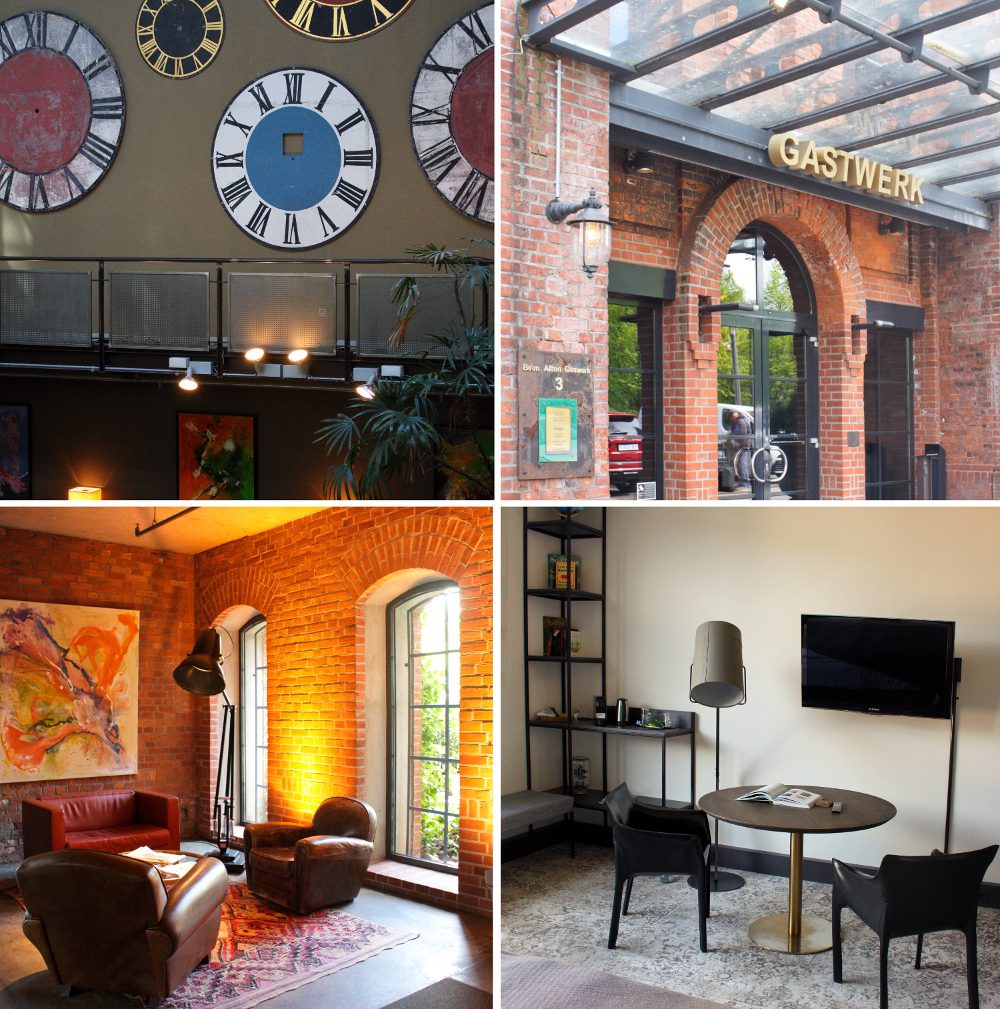

Artists would flock to the area on a lookout for inspiration and what could be a potential studio. Students and school drop-outs came as well as opportunist merchants, turning part of the buildings into auto repair shops. A good 44 years had passed before the decaying site was bought by an investment group turning it into what we now know today as the Gastwerk.
The lattice steelworks and edgy aesthetics will bowl you over. Most likely why dozens of artists came here in the first place. Giant clocks and elevated tracks, spacious chambers and vestibules, metal contraptions and pipes, a tower and rotary platform for railroads all make an outstanding backdrop. One enters a cathedral of machinery made of intertwining iron and ore set against a cavernous hall of red bricks. On center stage, natural light streams in like one of those renaissance paintings as if to say you have been chosen.
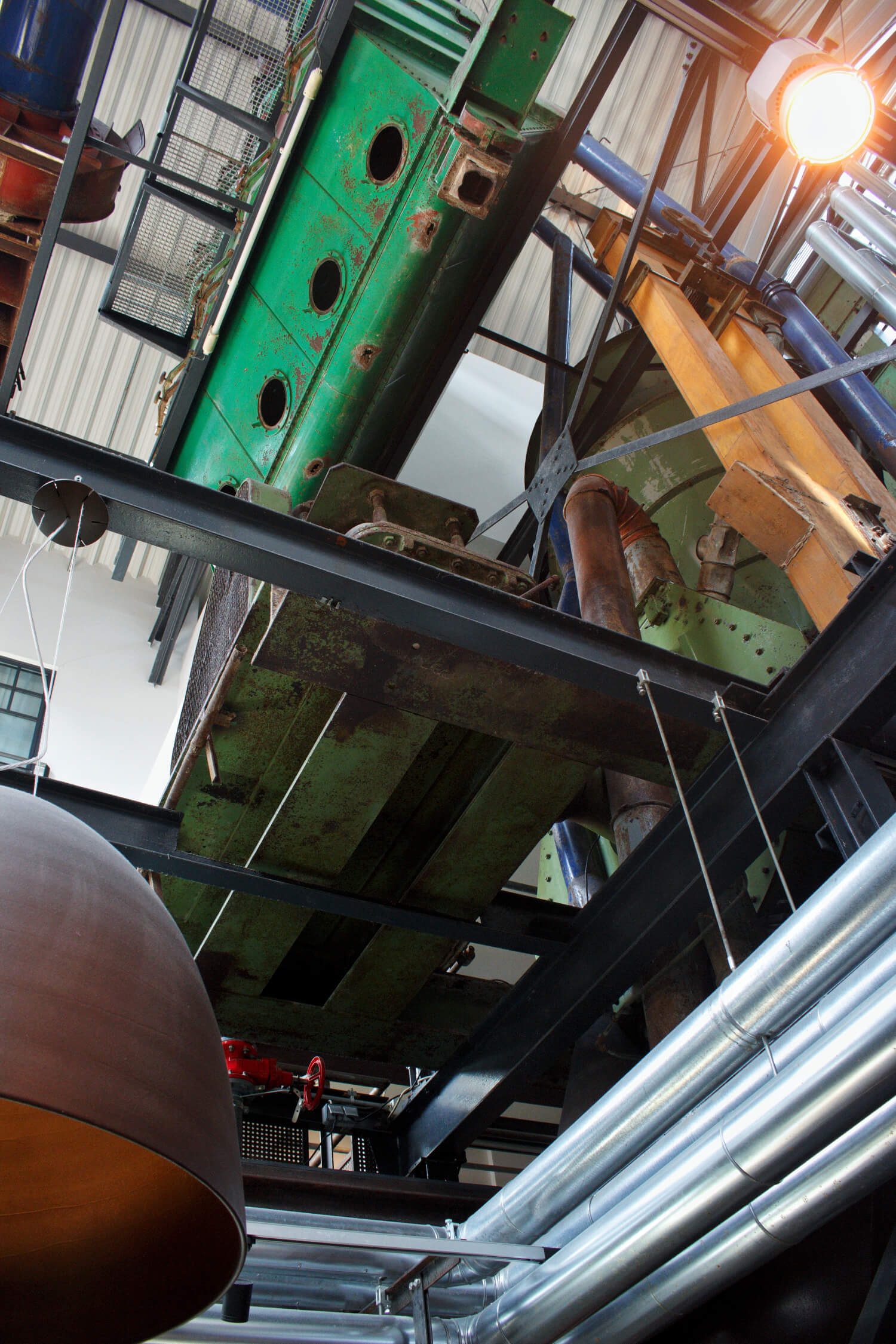



Instead of rooms, there are lofts resembling an artist atelier with floor-to-ceiling windows. A total of 114 lofts, all of which are bright and airy and a few are suspended midair. Against the exposed bricks and unique touches of modern comfort, is a calm atmosphere. Gastwerk or perhaps ‘Guest-work’ is a befitting name for a gem.
A city like Hamburg does not run out of paradoxes. So much so that it’s almost become the city’s interpretation of cool. It breeds its very own contradiction and happily basks in it.
Count Ferdinand von Zeppelin in his rousing speech in March 1901 persuaded the people of Hamburg about the possibilities of the future – airship travel. A year later, one of the world’s oldest airports was opened in Hamburg. It goes without saying that openness has been one of the city’s endearing qualities.
Fast forward to July 2017, when former Chancellor Angela Merkel hosted world leaders to her birthplace during a G20 summit, the city and its spirit of openness were again under the spotlight. The outcome proved to be a dichotomy. The residents didn’t exactly warm up to the idea of having their quality of life and their daily routines interrupted by visiting presidents and prime ministers.
This is the Hamburg I have come to know during my last trip – outward looking, open and free by means of tradition yet self-contradictory and self-obsessed that could make a wayfarer scratch his head and at the same time fall for its formidable charm.
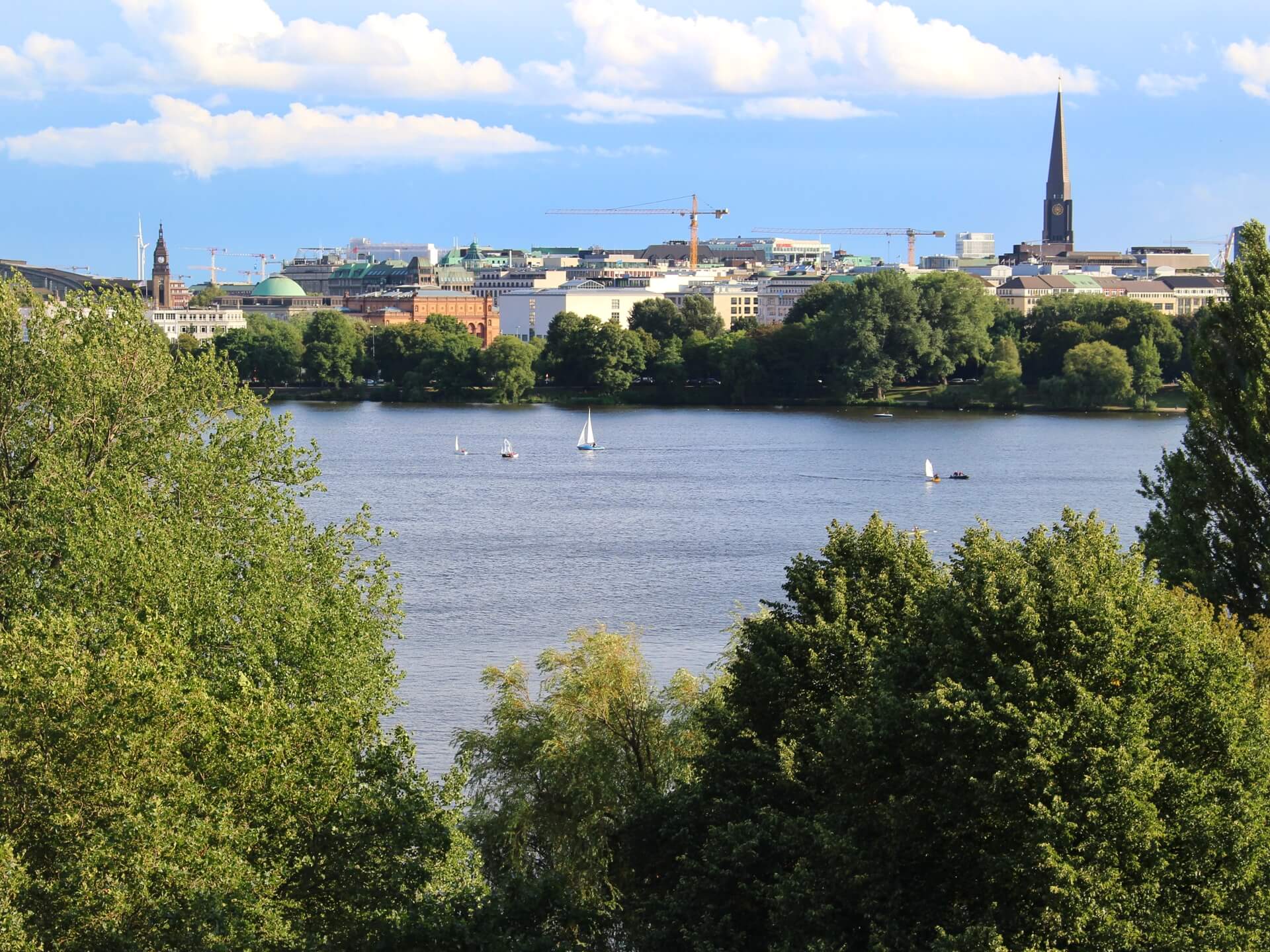

When was the last time you visited Hamburg? or is it going to be your very first? What do you think of this exciting harbor city pulsating with character and German pride? Share your Hamburg’s very own cosmopolitan cool memories in the comment section below. Love to hear from you 😉
BUTTER MY BAGUETTE
This website made of love strives to produce FREE CONTENT.
Help me tell more stories and keep this website free of any advertisement by supporting Flying Baguette in inspiring more people and connecting you with other cultures and communities around the globe. Donate a little or as much as you can afford to keep the magic of Flying Baguette going for years to come. Share your support through the icons below ⬇️










I’ve never been to Hamburg but I certainly have to visit the city. The architecture and public spaces depicted look very beautiful and pleasant to enjoy.
The accommodations are very appealing and the decoration very unusual. I really like the alternative but cozy side of each of them.
I’ve always been a big fan of using (and maintaining) traditional features of buildings, such as the presence of donkey bricks.
I had heard of the close association of this city with the UK, indeed some of my English friends live there and say they feel very much at home.
Those hotels are certainly beautiful and stylish and I’d be very happy to stay in any of them.
I’ve heard that the dock area is a wonderful place to explore.
I love the contrast you highlight in Gastwerk, but overall the city of Hamburg looks intriguing. I did not realize the obsession with the Brits though haha. I’d love to walk along the water and take in all the sights!
Aside from the Beatles, I had no idea about the many relationships between Hamburg and the Brits! It’s a city we would love to visit. We’ve just returned from a brief sojourn to Germany but simply didn’t have time to see Hamburg, something we must remedy on our next visit. With its maritime and aviation history, it really does seem to exude “gateway to the world”.
Both hotels look fab. Particularly love the cool industrial design of Gastwerk.
Mitch & Colin from Very Tasty World
Oh I love a good revisit and I remember your hotel recommendation from your first Hamburg visit. You love a hotel with a good view over the Alsterbecken. I was not aware about the Hamburgers obsession with Britain but it makes sense, since it is so accessible to cross the North Sea from Hamburg. I do know about the coffee scene tho and can confirm it is top notch. Once again, I am in love and sold with your hotel choices. You and I have the same taste and style when it comes to travel accommodation. I approve!
Carolin | Solo Travel Story
Hamburg was the very first place I visited abroad. I don’t remember much of it, since I was 14 and at that point just overwhelmed with being out of the UK for the very first time. Although by your post it sounds like I’d feel a lot more at home than I thought I would given the British influence or celebration here. I’d like to revisit Hamburg, you’ve convinced me that I need to get there again and really explore.
Hamburg seems to be a destination that needs time to explore all its different sides. I am very drawn to Gastwerk — its contrast of industrial and hospitality design intrigues me. I know it would be a great place to choose as a base.
I knew there were many connections between Hamburg and England but I hadn’t realized how that had manifested in Hamburg.
Lyn | http://www.ramblynjazz.com